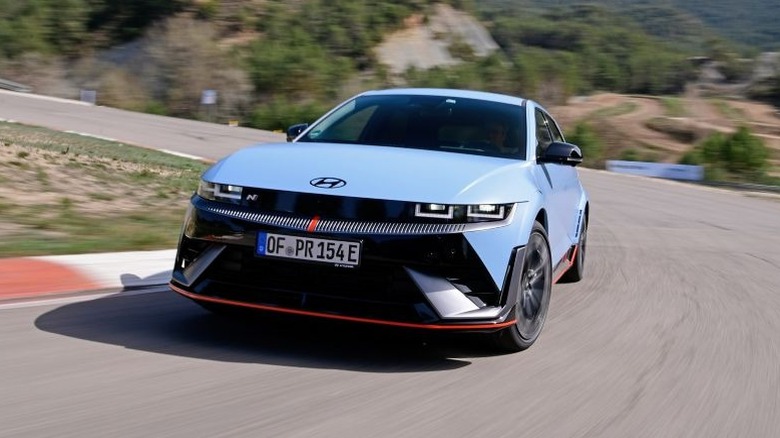
One of the major concerns that folks have when considering switching to an electric vehicle is battery life and longevity. When it comes to smaller devices like cell phones and laptops, battery degradation is a common and frustrating problem that can be exacerbated by frequently fast-charging a device or leaving it plugged in overnight and overcharging it, so why shouldn't the same thing happen to EVs, right? Thankfully, a study released by Geotab, a United Kingdom–based vehicle telematics company, found that most electric vehicle batteries last between 15 and 20 years, with an average degradation rate of about 1.8% per year under moderate conditions. That's longer than the average age of all light vehicles on the road in the United States, which according to data from the U.S. Department of Transportation's Bureau of Transportation Statistics is about 12.6-years-old.
While battery degradation in electric vehicles was a more significant barrier in the past, the maximum range of EVs has increased to the point that degradation isn't a death sentence. Just ten years ago in the year 2015, all five of the best electric vehicles according to Kelly Blue Book — the Ford Focus Electric, Chevrolet Spark EV, Nissan Leaf, Fiat 500e, and the Volkswagen e-Golf — had maximum ranges under 90 miles. When those batteries degrade, it drops their already low maximum range estimates to unreasonably short distances, but now that more EVs have range estimates upwards of four times as long, the degradation is effectively a non-issue.
 Hyundai
Hyundai
Not all batteries are created equal, but there are a few ways to maximize the longevity of your EV's maximum range. According to our friends at InsideEVs, "Keeping the state of charge between 20% and 80% on nickel-manganese-cobalt (NMC) and nickel-cobalt-manganese (NCM) batteries is also a sure way to prolong battery life. On lithium-iron-phosphate (LFP) batteries, this limitation generally doesn't apply, but one study found that constantly topping off an LFP pack could potentially reduce its lifespan."
DC fast charging can marginally increase an EV's rate of battery degradation, but it's more effective to avoid fast-charging when your car's charge is either very low or very high, as doing so puts additional unnecessary stress on the battery. Many modern EVs have liquid-cooled batteries and a preconditioning feature that can optimize the vehicle's battery temperatures when heading to a fast-charging station, which helps to mitigate degradation caused by fast charging in extreme temperatures.
 GMC
GMC
If EV batteries degrade at a rate of about 1.8% each year, the average rate of the 10,000 EVs that Geotab measured, after 20 years that battery would still have 64% of its maximum capacity. Let's use the popular 2025 Hyundai Ioniq 5 as an example. It has an EPA-estimated maximum range of 318 miles. If its battery degrades at 1.8% per year, that same Ioniq 5 will still be able to travel over 200 miles on a charge after 20 years of use. While that 203-mile range is less than the original range when the car was new, it's still plenty useable.
The average passenger car registered in the U.S. regardless of fuel type is about 14-years-old according to the Bureau of Transportation Statistics. As all car people likely know, maintaining a 14-year-old car can be a never-ending process of replacing different components as they invariably fail. As with everything, there is no perfect science here. According to InsideEVs, one study shows that EVs made in the last decade have had a battery failure rate of less than 0.5%, so there are occasions when high-voltage EV batteries do fail, but in statistically insignificant numbers.
The barriers to EV ownership are becoming fewer and fewer, yet as we reported last year, nearly half of all new EVs are leased. Leasing an EV can be a great way to dip a proverbial toe into the waters of EV ownership without the long-term commitment of outright ownership, but if you choose to buy a new EV you can rest easy knowing that long-term battery degradation is less of an issue than ever before.














